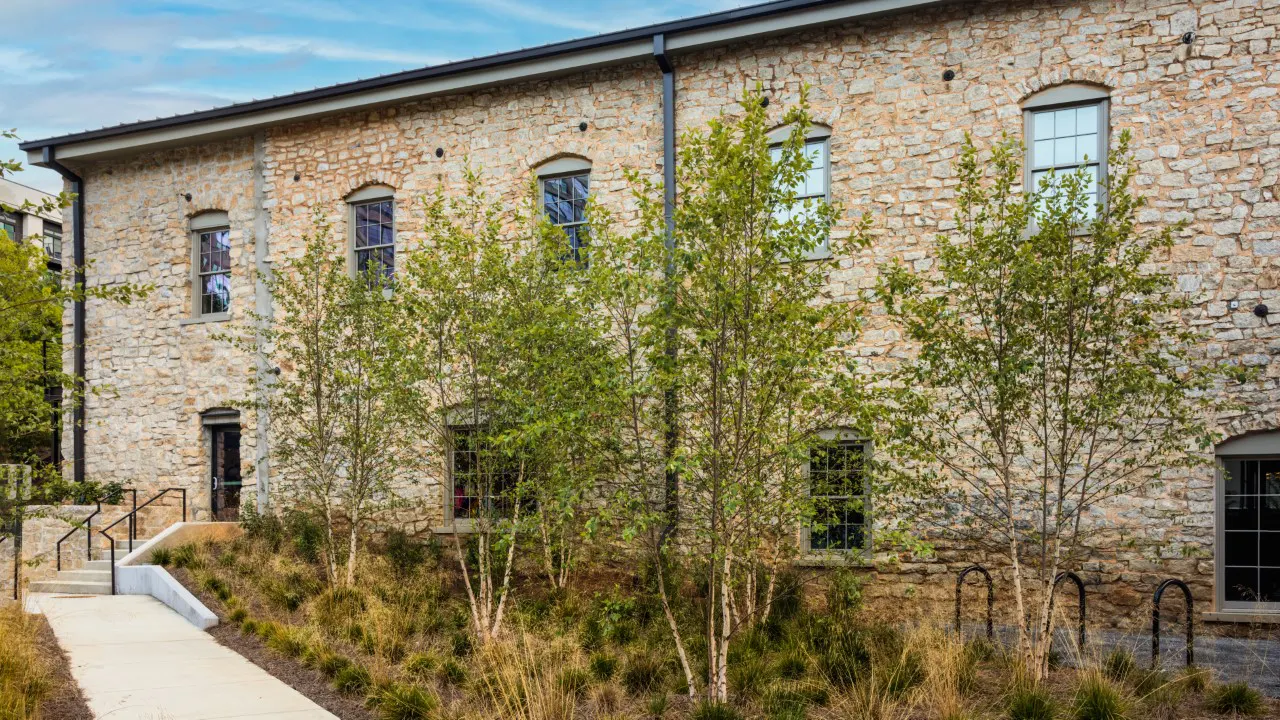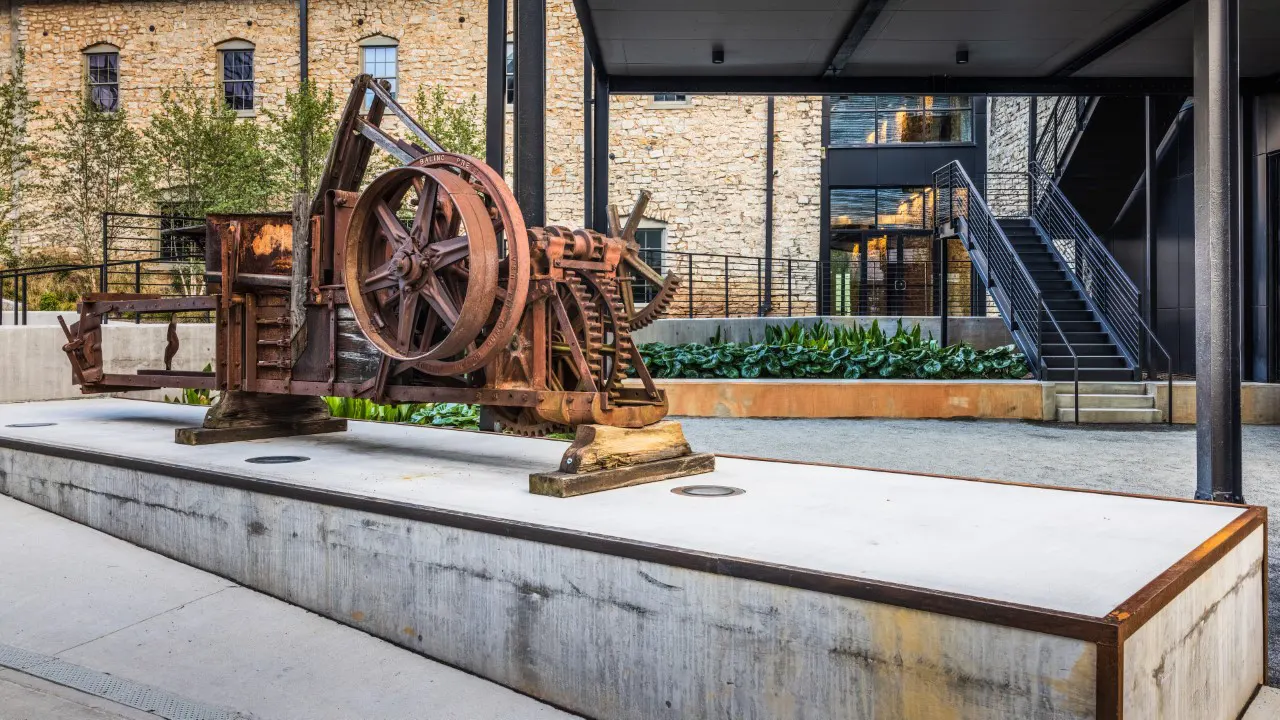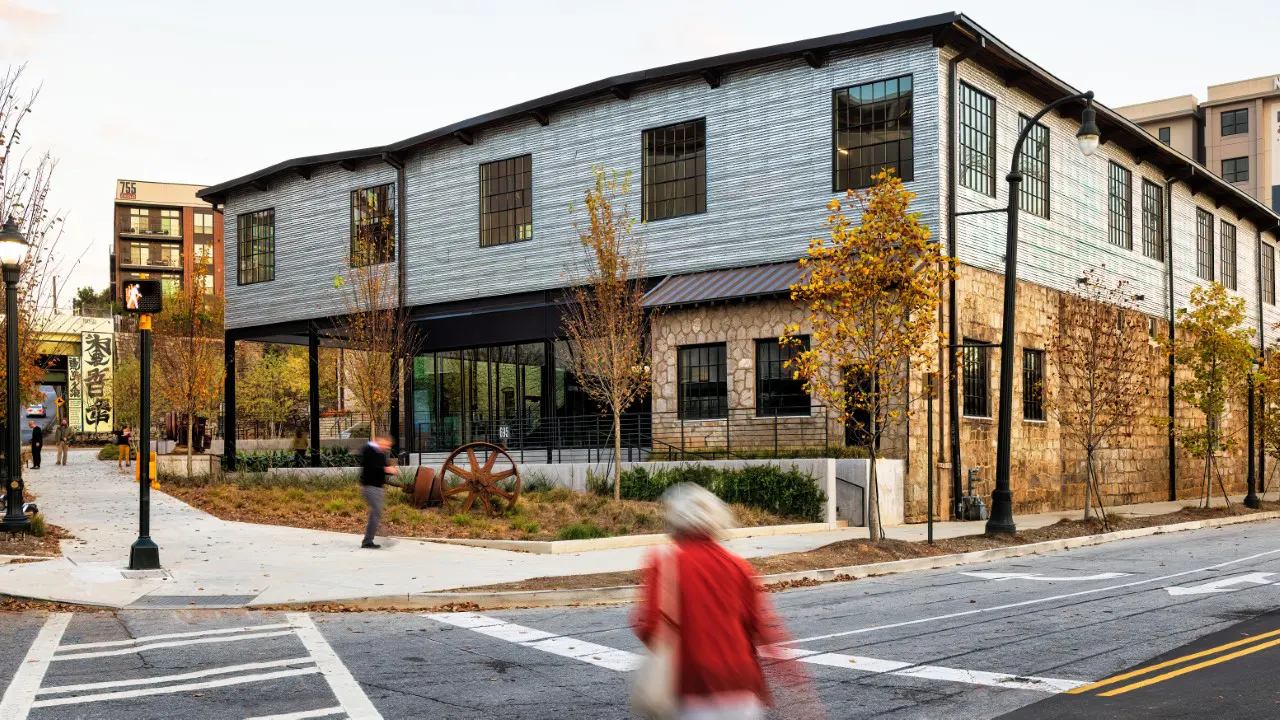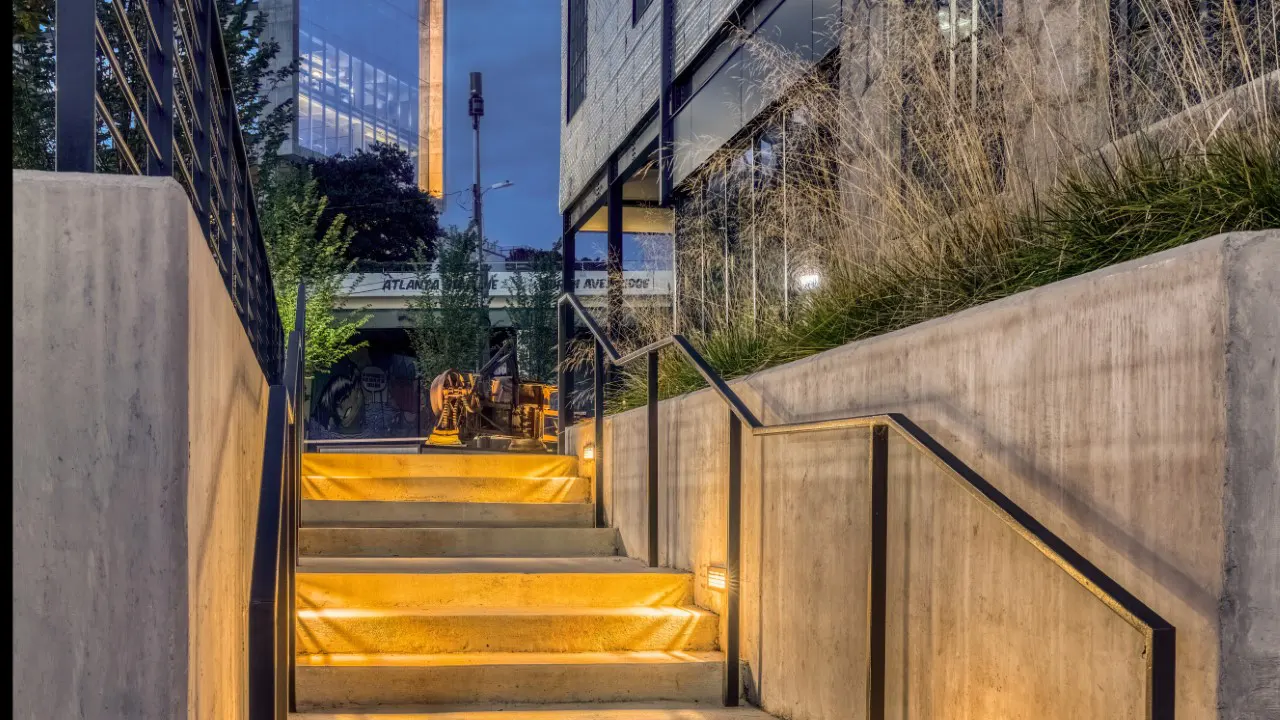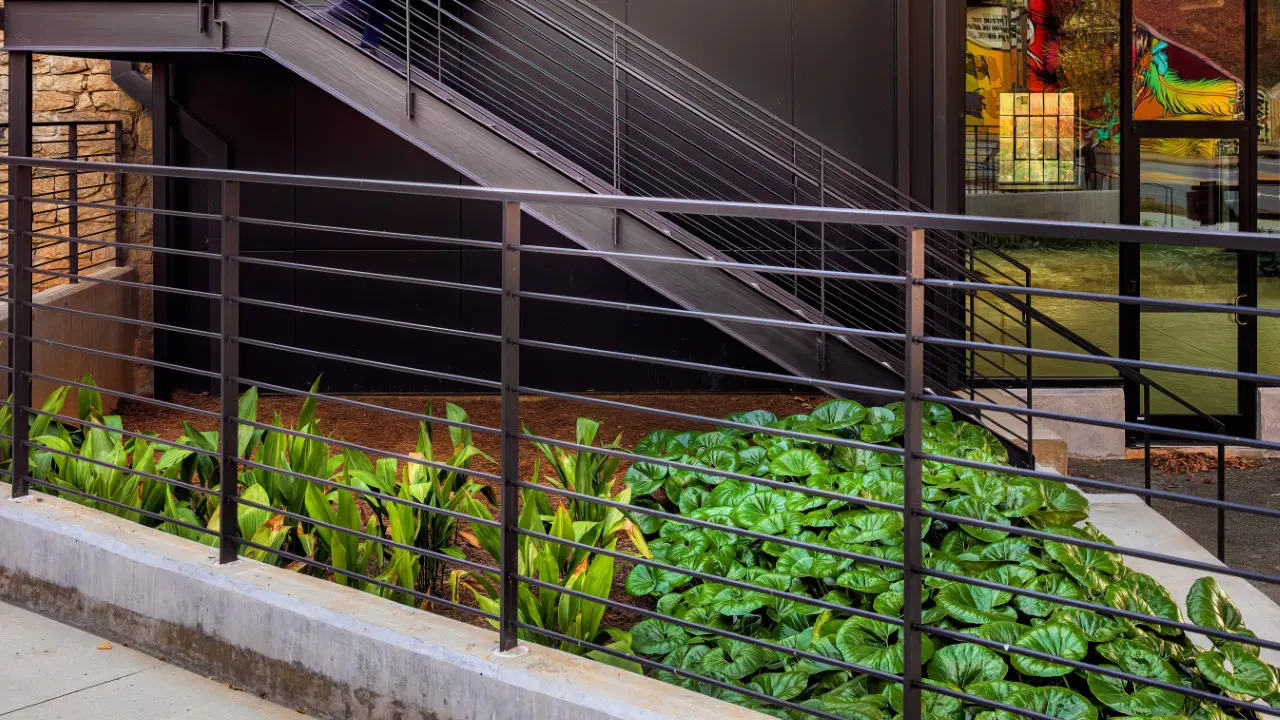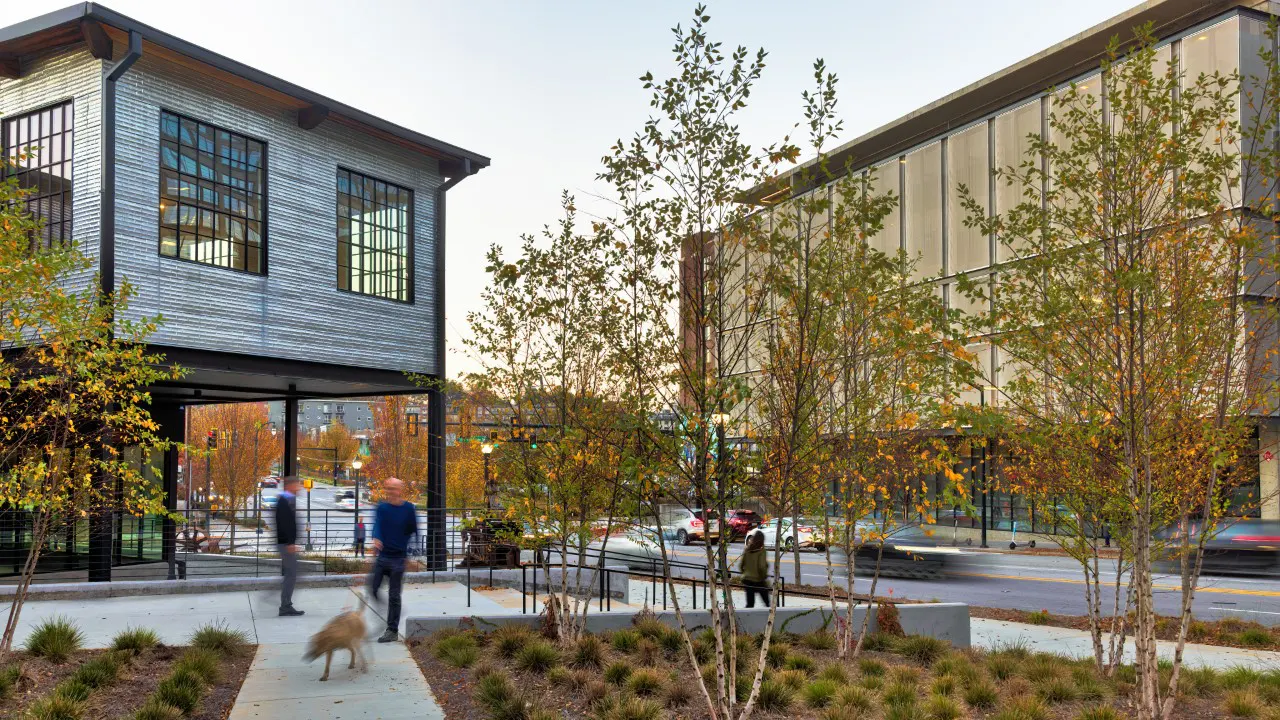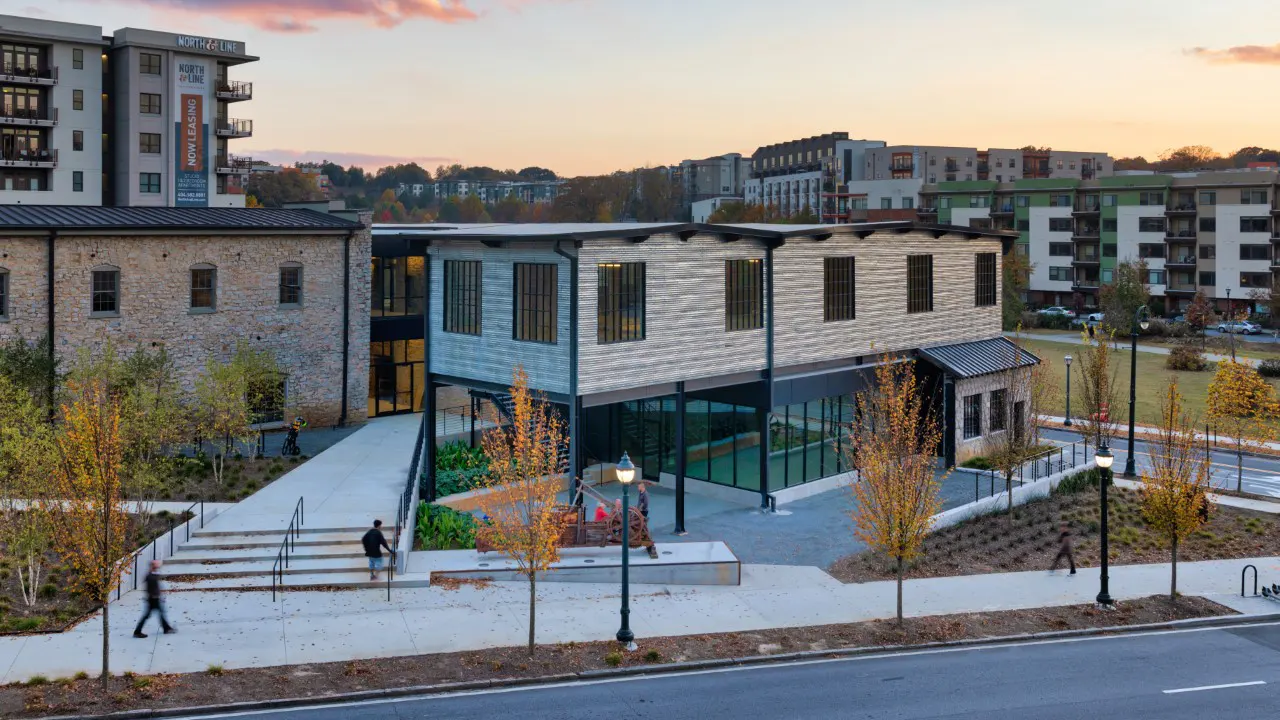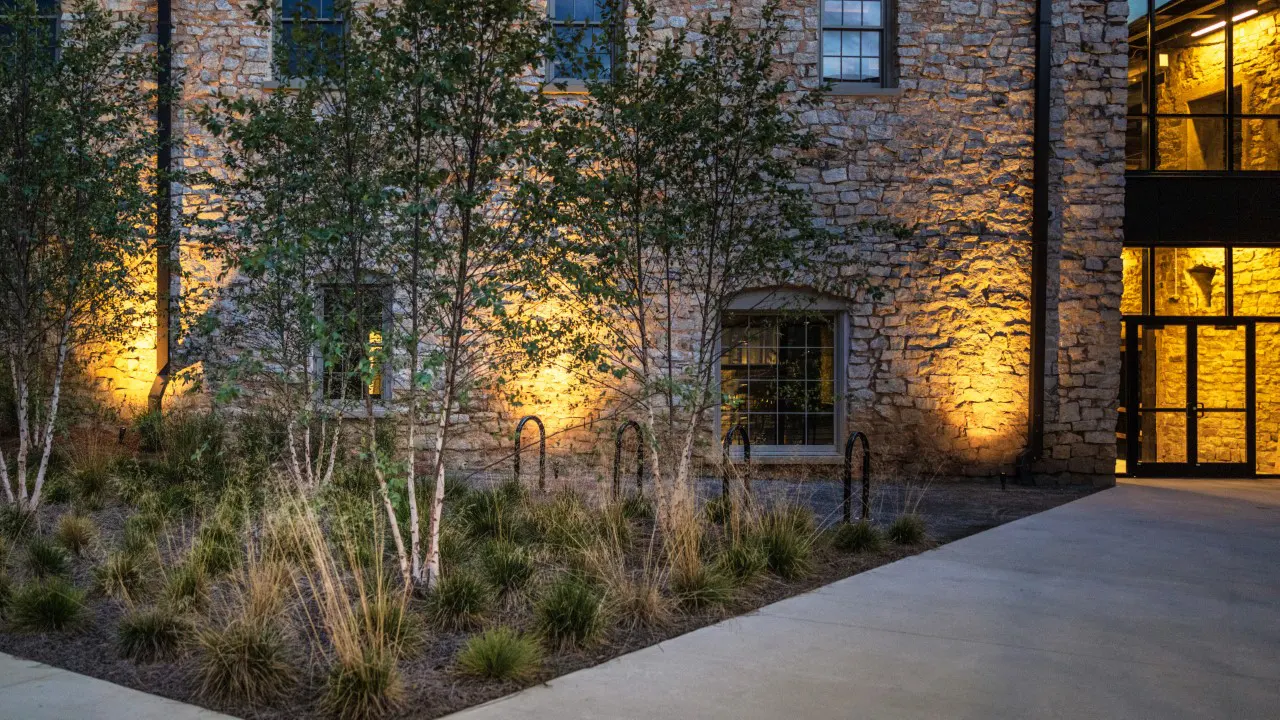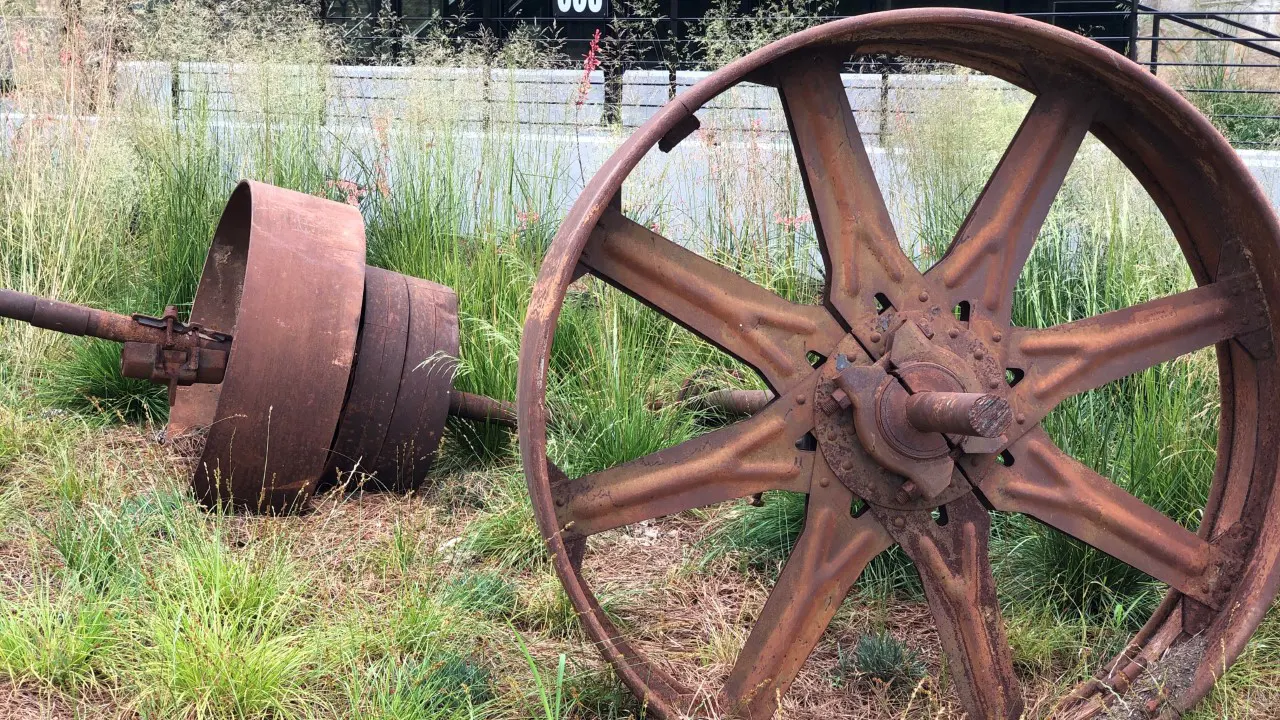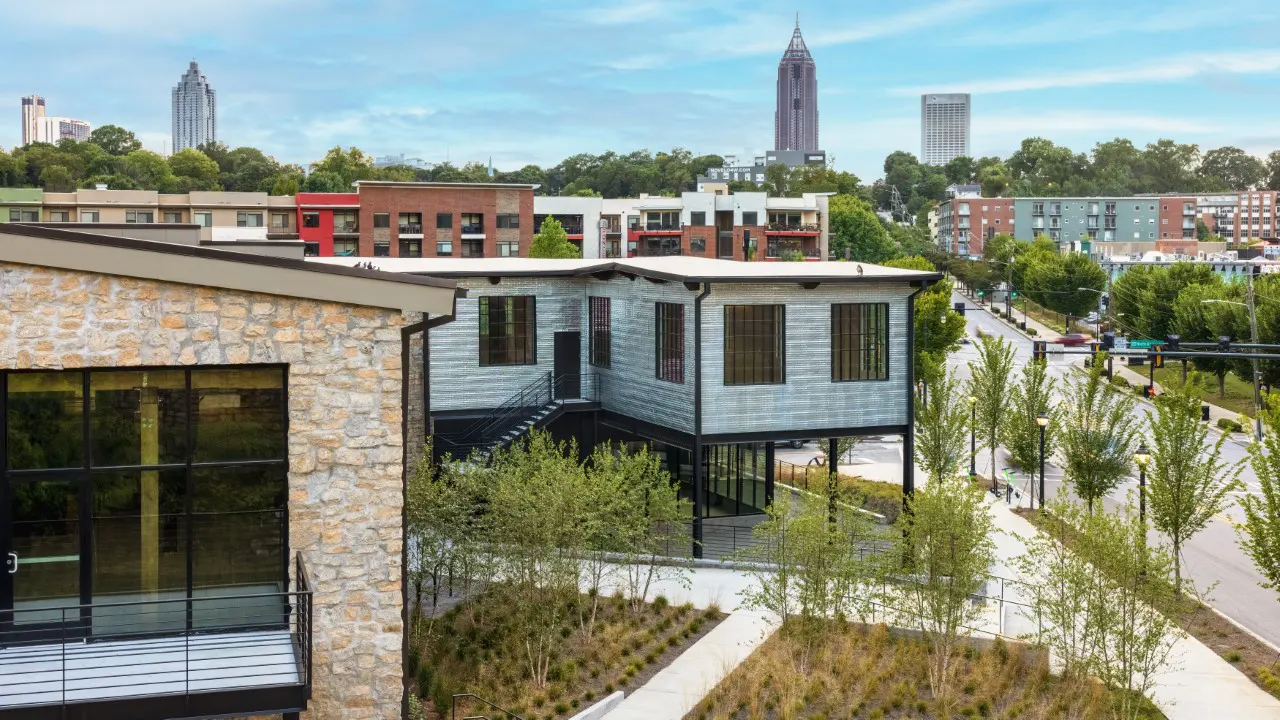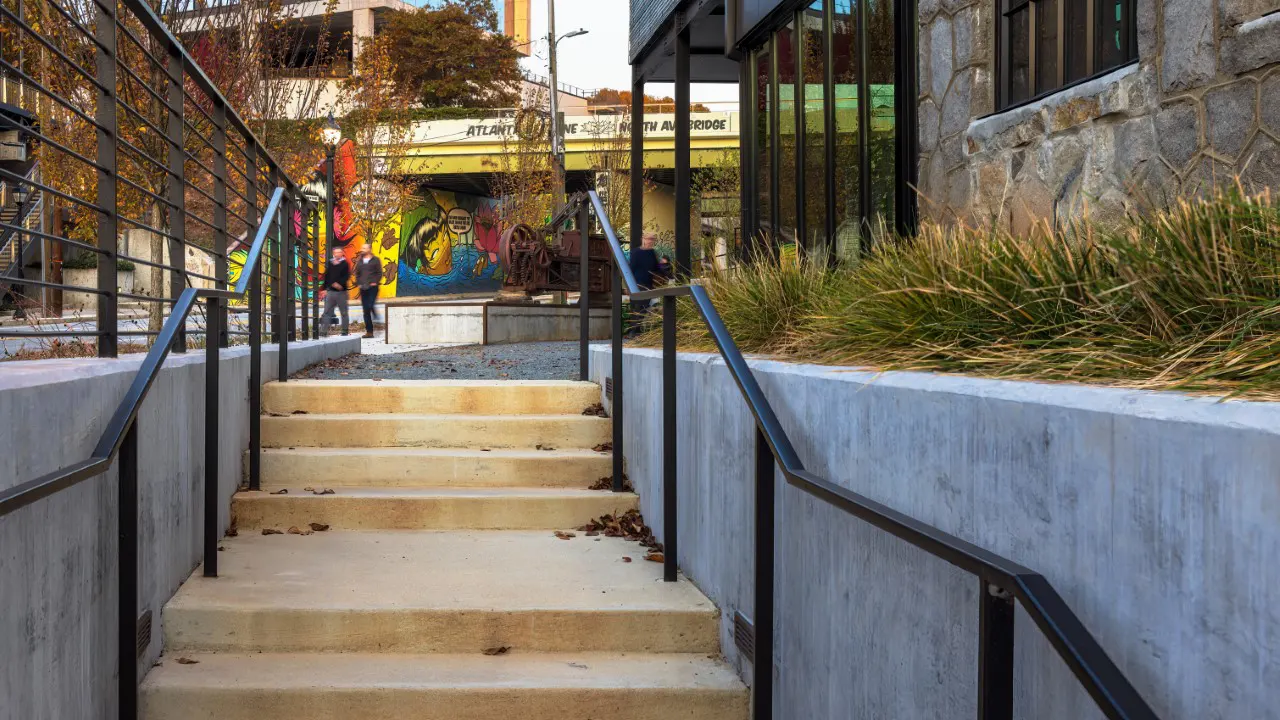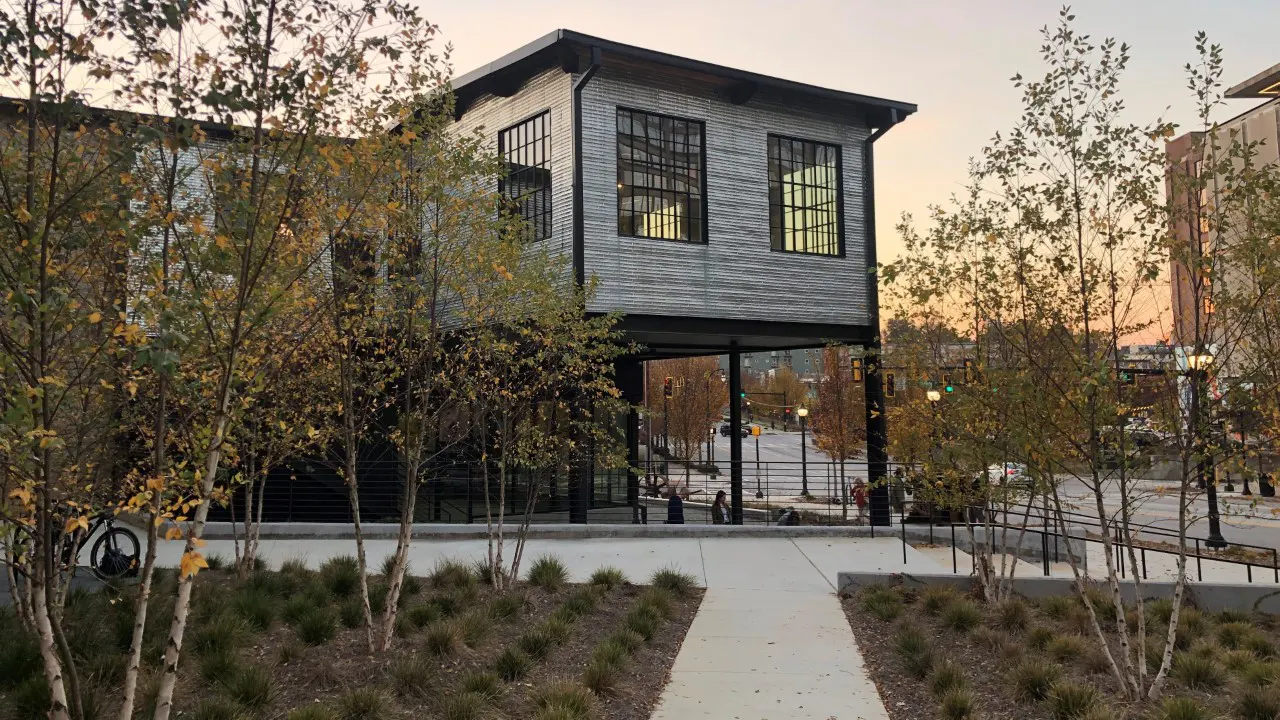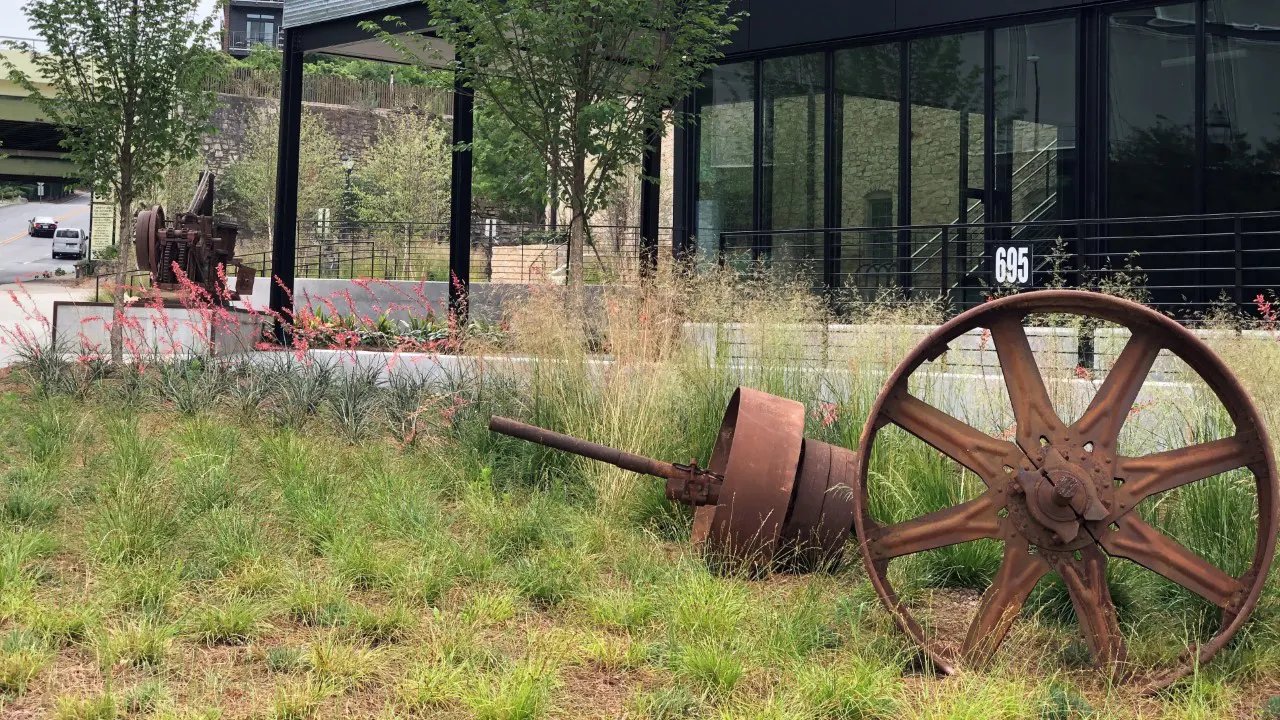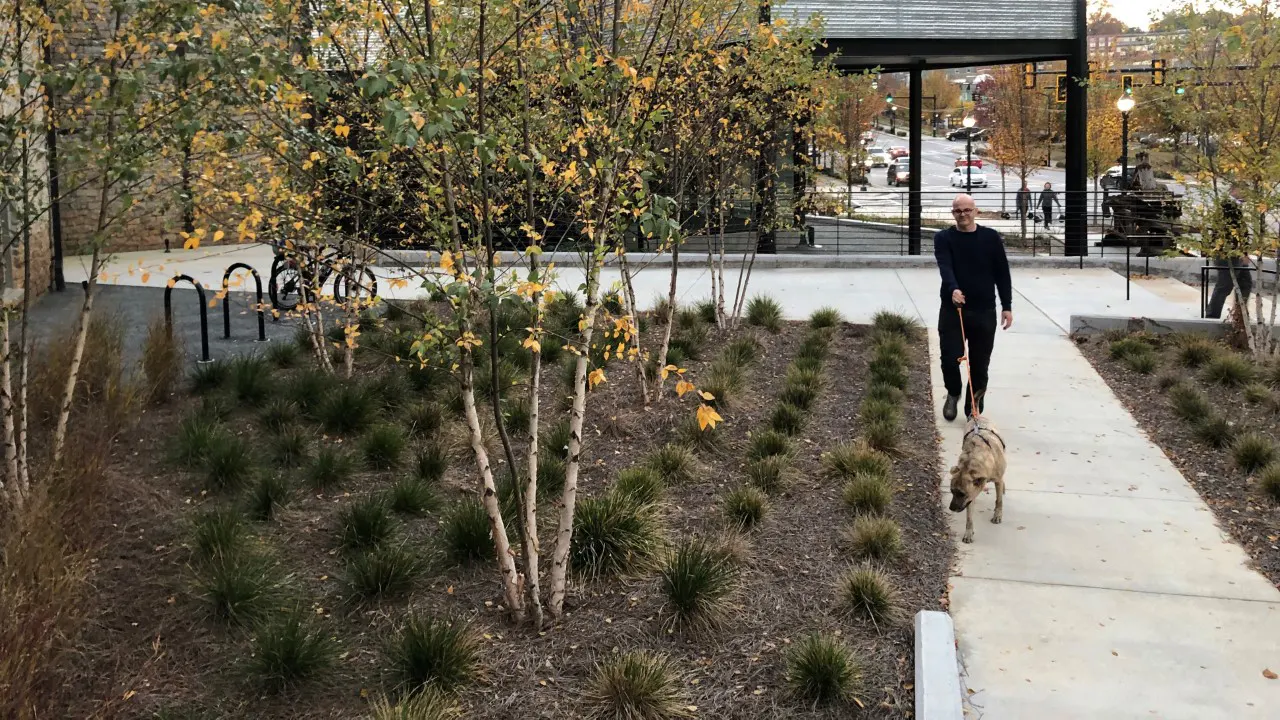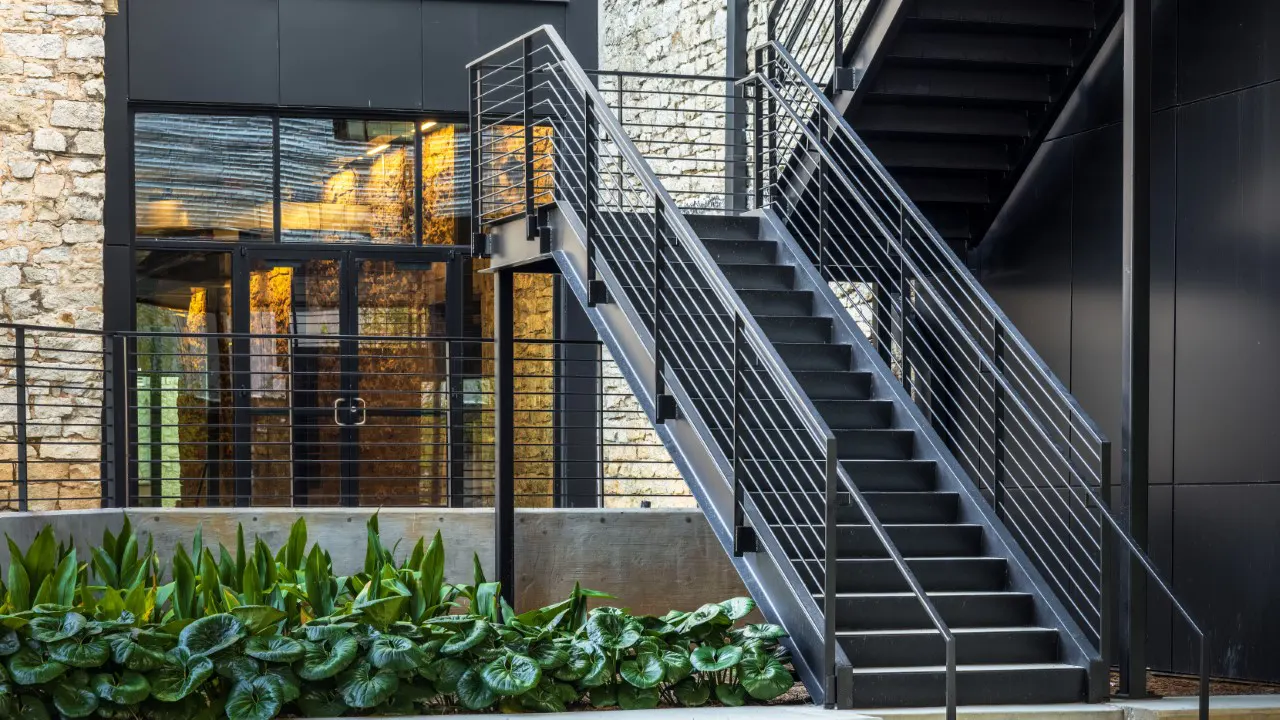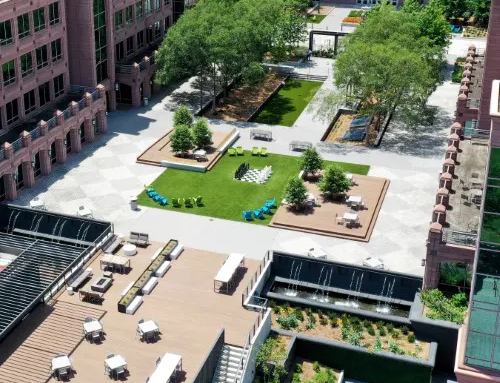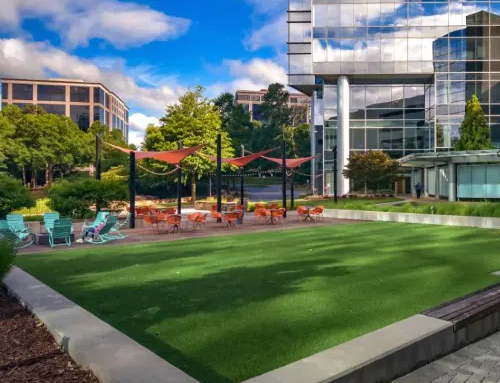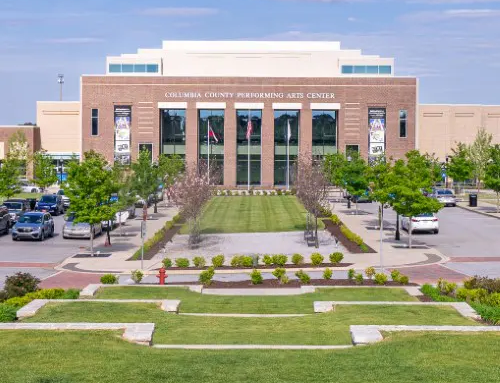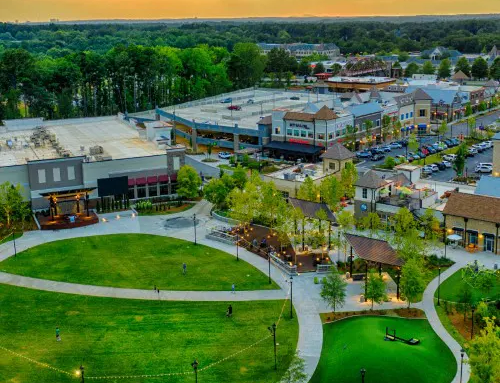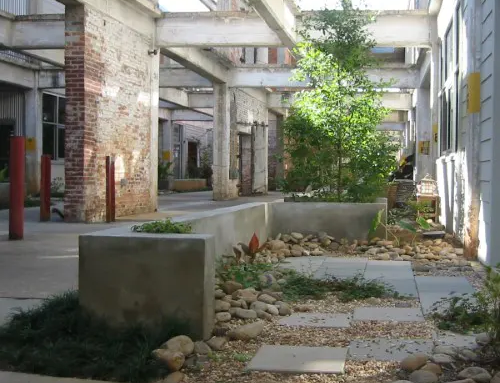Details:
Highlights:
Description:
The Historic Excelsior Mill is a significant building dating back to the 1890s. It originally served as a manufacturing facility for wood shaving packing material, but in recent years, the building has undergone an adaptive reuse transformation to become a 30,000 square foot single-tenant office space for the growing tech company Cash App.
As part of the Historic Excelsior Mill’s rebirth, TSW’s landscape architecture studio was responsible for preparing construction documents for the site planning, including exterior layouts, hardscape, and softscape materials. TSW also provided ADA parking and accessible pathways throughout the site as an integral part of the site plan. The design emphasizes clean lines and geometry, which accentuate the architectural elements of the building and strengthen the views into the space from the right-of-way.
One of the unique elements of the design is the incorporation of reclaimed machinery from inside the building as focal art pieces. These repurposed pieces not only invite visitors to stop and ponder the history of the building, but they also serve as wayfinding that highlights the main entrances. Additionally, a granite fine patio, covered by the second floor of the building, serves as an extension of the interior space. This patio flex space ultimately serves as a place where inside office meetings can spill outside on warm, sunny days.
Overall, the adaptive reuse of the Historic Excelsior Mill has been a success, transforming the building into a functional and modern office space while preserving its rich history and character. The landscape design, with its emphasis on accessibility and incorporation of reclaimed machinery, adds to the overall aesthetic and enhances the experience for both employees and visitors.
Challenges and Opportunities:
- ADA accessibility and site grading. Both an existing arterial roadway and The Mill building were conformed to an existing 5% slope. The Mill did not have any footers and due to the natural sloping of the land there were 4 varying building FFEs that had to be considered. These site constraints resulted in a careful terraced layout, all ADA accessible, which married the building to the public right-of-way.
- Beltline Overlay District. The site is located immediately adjacent to the Atlanta Beltline, an ongoing conversion of 22 miles of unused railroad tracks that circles the core of Atlanta to trails and greenspace. The Atlanta Beltline is an economic catalyst in Atlanta, and as part of the Beltline Overlay District there are code and design appropriateness reviewed for all commercial developments. TSW was tasked with creating a hardscape and planting palette that paid homage to the historic and rustic character of The Mill. This was achieved by using granite fine material in patio spaces, pulling into the exterior steel accents and handrailing elements that were seen inside of the building, and using monocultures of ornamental grasses and native trees to achieve a planting palette that would draw the historic sense of place.
- Achieving the stormwater requirements on site was difficult due to the amount of impervious area and general spatial constraints. As a result, an underground water quality structure was installed at the site’s low point. This underground structure was large and had to fit completely outside of the R.O.W. and in conjunction will new site wall footings and tree rootballs.

